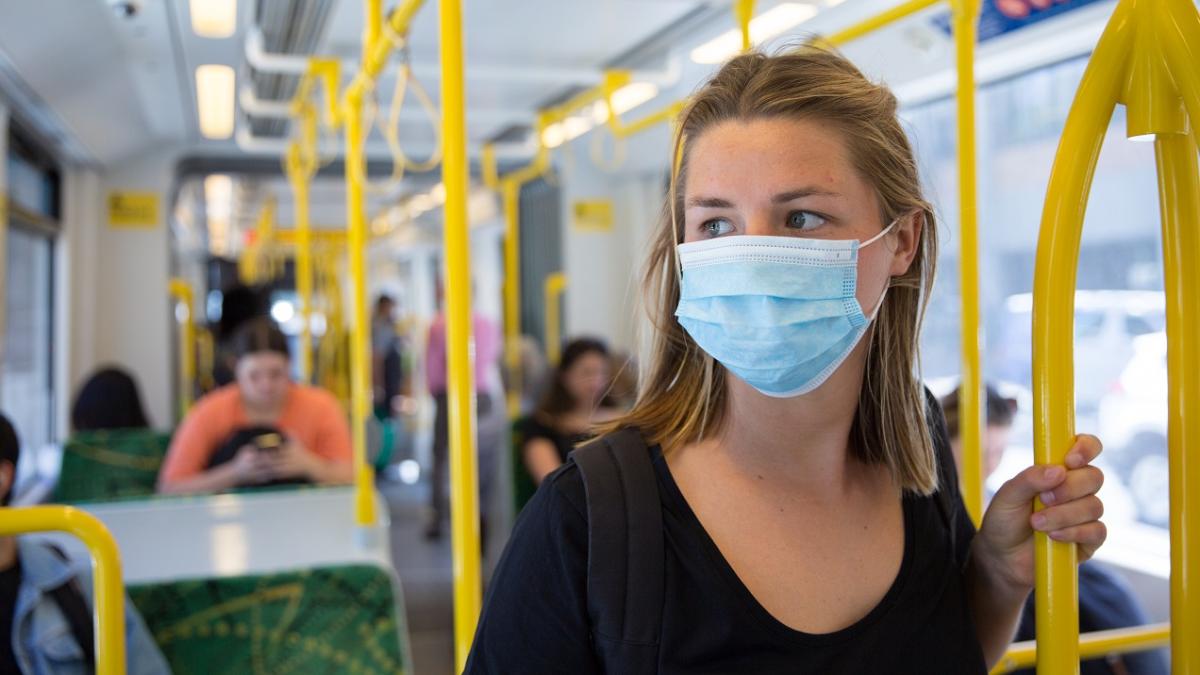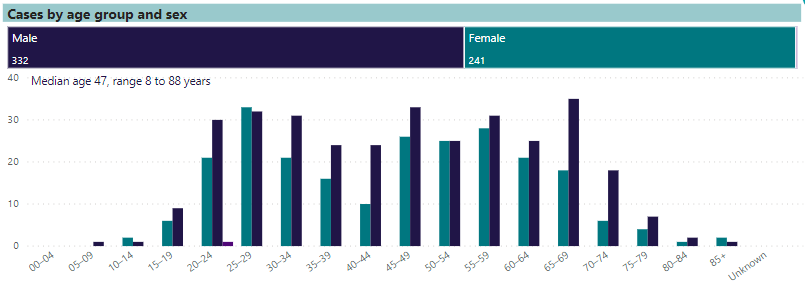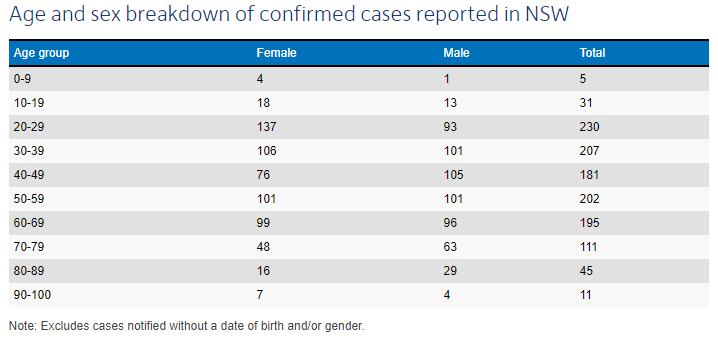
More people in their 20s have tested positive for coronavirus (COVID-19) in Victoria and New South Wales than any other age group, according to some pretty concerning official figures.
Victoria’s new COVID-19 dashboard shows 117 people in their 20s have been diagnosed with the virus, superseding the 109 infections recorded among Victorians in their 50s. A total of 574 cases have been recorded in the state so far.

Across the border, 230 people in their 20s tested positive for the virus in NSW as of Wednesday night, according to the state’s health department.
That’s marginally higher than confirmed cases among people in their 30s, which stand at 207, while 202 cases have been reported among people in their 50s.
NSW has counted 1,405 confirmed cases as of this morning, but the full age breakdown of that figure is yet to be released.

Those numbers don’t tell the whole story: Australians in their 20s make a higher proportion of the population than those in their 60s, so older Australians may actually have a proportionately higher number of confirmed cases.
Regardless, the number of young people testing positive for COVID-19 is “probably a reflection of the socialisation of this age group and the connectedness with travel and work,” said La Trobe University’s Associate Professor Hassan Vally.
The epidemiologist and public health expert says it’s unlikely people in their 20s are more susceptible to infection than any other age group, but may face more personal interactions where transmission could take place.
Read: the way we normally live our lives is not gonna cut it right now.
“It highlights the important message that is being communicated by public health experts and governments that younger individuals who may not be as susceptible to severe outcomes need to take social distancing seriously,” he said.
That’s a viewpoint shared by Dr Petr Matous, a senior lecturer at the University of Sydney’s School of Civil Engineering. His work focuses on how complex social networks interact with the physical environment, which comes in handy when analysing the spread of a pandemic.
“Young people are often highly socially engaged and mobile, with social links spreading diverse groups and locations, and therefore have the potential to work like hubs in the social fabric of our society,” Dr Matous said.
“This is a great thing during normal times but during an epidemic the most socially engaged individuals can become viral super-spreaders.”
Dr Matous said that in situations like this, peer pressure can actually be utilised for good: the more people see social distancing as a net benefit, the fewer people are likely to head out and potentially spread the virus.
“In particular, we need to focus on the social stars that have the potential to make the biggest difference, for good or bad,” he said.
“They may not listen to a politician telling them what to do – they need to hear that from a friend or someone they trust.”
Some young survivors are already observing that advice, and are using their social media followings to urge young people to take COVID-19 seriously — lest they wind up in hospital themselves.
Infection rates are almost doubling every three days as Australia urgently rallies to limit the virus’ spread. More than 3,000 people have been infected, and 13 people have died nationwide.
While the Health Department advises some people who contract COVID-19 may only experience minor flu-like symptoms, or no symptoms at all, young people have been begged not to mess around with the virus.
It’s not only that young people can spread the virus — COVID-19 can severely impact otherwise healthy people in unpredictable ways. In the United States, a full 38% of confirmed COVID-19 cases serious enough to warrant hospitalisation over the last month were attributed to patients aged between 20 and 54.
Young people “are going to play a big role in slowing the spread of the infection” but only if “they take social distancing seriously,” Dr Vally said.
“To slow the spread, we need young people to mobilize around social distancing the way they have mobilised around climate change,” Dr Matous added.
“At least for now, until we are ready to cope better with what’s coming towards us.”
Take note, folks.
If you think you may have coronavirus, either call your doctor (DON’T visit) or contact the national Coronavirus Health Information Hotline on 1800 020 080. If you’re struggling to breathe or experiencing a medical emergency, call 000.
And please remember to wash your hands frequently (for at least 20 seconds) and keep at least 1.5 metres between you and those around you.







